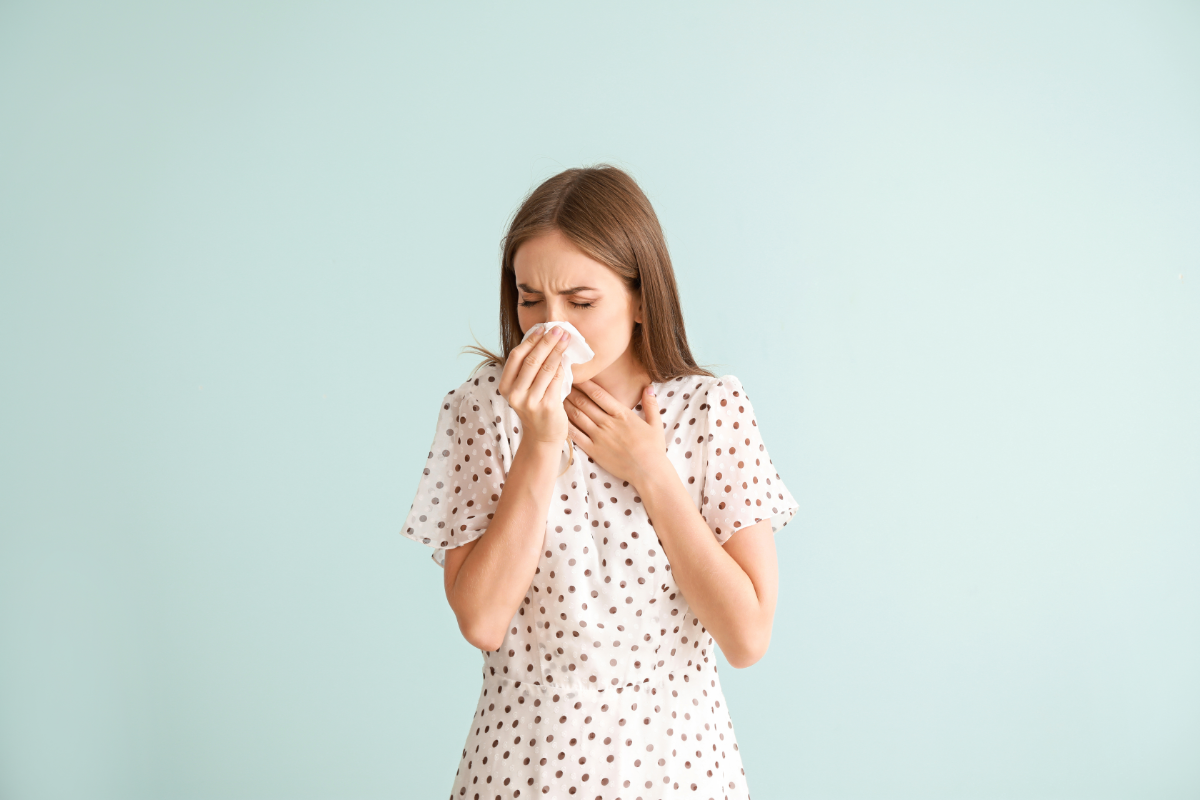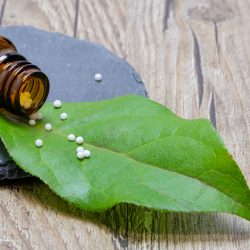Allergies are reactions of the immune system to foreign substances, called allergens, which can cause symptoms such as sneezing, itching, redness, skin rashes and breathing difficulties. Whether it’s pollen, house dust mites, animal hair, insect bites or food, allergies can disrupt our daily lives and well-being. In this article, we explore homeopathic treatments to prevent and cure allergies, by boosting the immune system and adopting a healthy lifestyle. Find out how to identify allergy symptoms, choose the right homeopathic remedy and consult a professional for a personalised treatment tailored to your situation.
The role of plant biodiversity in homeopathic remedies for allergies
Plant biodiversity plays a crucial role in the creation of homeopathic remedies for allergies. Indeed, different plants possess a variety of medicinal properties that can be exploited to relieve allergic symptoms naturally and effectively.
The richness of plant biodiversity offers homeopathic practitioners a wide range of choice when selecting substances to use in their treatments. Each plant has unique chemical compounds that can act on the immune system and allergic reactions in different ways.
For example, some plants are known for their anti-inflammatory properties, which can help reduce airway inflammation in people suffering from respiratory allergies such as allergic rhinitis or allergic asthma. Other plants have natural antihistamine effects, which can help block the release of histamine and reduce symptoms such as sneezing, runny nose and itching.
In addition, the diversity of plants allows homeopathic practitioners to create specific formulations for different types of allergy. For example, plants such as urticaria dioica can be used to treat skin allergies, while other plants such as allium cepa are more effective in treating respiratory allergies.
Using a holistic approach, homeopathic practitioners take into account not only the specific symptoms of the allergy, but also the patient’s general state of health and other individual factors. This allows them to personalise treatment by selecting the most appropriate plants for each individual case.
The dilution process in homeopathy and its impact on allergy treatment
The dilution process is one of the fundamental principles of homeopathy and plays a crucial role in the treatment of allergies. This method involves a series of successive dilutions of an active substance in a solvent, usually water or alcohol, followed by vigorous shaking at each stage, known as succussion. Although it may seem counter-intuitive, the dilution process is essential to activate the curative properties of substances and minimise their toxicity.
Homeopathy is based on the principle that diluted substances retain a ‘memory’ of their molecular structure, even at extremely low concentrations. According to the principles of homeopathy, the more a substance is diluted and succussed, the more therapeutically potent it becomes.
The dilution process in homeopathy is generally described by a dilution scale, indicated by letters followed by Roman numerals. For example, a dilution of 1CH means that one part of the active substance has been diluted in 99 parts of the solvent, while a dilution of 30CH indicates that the process has been repeated 30 times. The higher the number of dilutions, the lower the concentration of the active substance.
Although some may question the effectiveness of homeopathic remedies because of their low concentration of active substance, advocates of this method maintain that it is precisely this extreme dilution that makes them effective. According to homeopathic theory, high dilutions allow the substance to stimulate the patient’s immune system without causing adverse reactions.
In the treatment of allergies, the dilution process is used to prepare specific remedies containing natural substances known for their anti-allergic properties. For example, dilutions of plants such as histamine or allium cepa can be used to successfully treat allergic symptoms.
Introduction to allergies and homeopathy
Causes and symptoms of allergies
Allergies are reactions of the immune system to foreign substances, called allergens. These reactions can cause a variety of symptoms, such as a runny nose, sneezing, itching, redness and breathing difficulties.
Principle of homeopathy
Homeopathy is an alternative medicine based on the principle of similarity: “like cures like”. It involves administering diluted substances to treat illnesses by causing symptoms similar to those of the illness itself.
Homeopathic treatments for allergies
Identifying symptoms
It is important to identify the symptoms of the allergy in order to choose the appropriate homeopathic treatment. Allergies can be classified into three main categories: respiratory, skin and food allergies.
Respiratory allergies
For respiratory allergies, such as hay fever or allergic asthma, remedies such as Allium cepa, Sabadilla officinarum or Arsenicum album can be used.
Skin allergies
In the case of skin allergies, such as eczema or urticaria, remedies such as Apis mellifica, Rhus toxicodendron or Graphites can be used.
Food allergies
For food allergies, remedies such as Nux vomica, Pulsatilla or Lycopodium clavatum can be used.
Examples of the usual dosage of homeopathic granules for each type of allergy
It is advisable to consult a homeopathic doctor to determine the appropriate dosage for your situation. That being said, here are some common homeopathic granule dosages for different types of allergy:
- Respiratory allergies (hay fever, allergic asthma, etc.) :
- Allium cepa: 5 granules in 9 CH, 3 times a day
- Sabadilla: 5 granules in 9 CH, 3 times a day
- Arsenicum album: 5 granules in 9 CH, 3 times a day
- Skin allergies (eczema, urticaria, etc.) :
- Apis mellifica: 5 granules in 15 CH, 3 times a day
- Rhus toxicodendron: 5 granules in 9 CH, 3 times a day
- Graphites: 5 granules in 9 CH, 3 times a day
- Food allergies:
- Nux vomica: 5 granules in 9 CH, 3 times a day
- Pulsatilla: 5 granules in 9 CH, 3 times a day
- Lycopodium: 5 granules in 9 CH, 3 times a day
These dosages are given as a guide and may vary depending on the severity of the symptoms and the sensitivity of the patient. It is important to consult a homeopathic professional to determine the dosage and dilution best suited to your case.
Choosing a homeopathic remedy
Dilution and dosage
The choice of dilution and dosage will depend on the severity of the symptoms and the patient’s sensitivity. It is generally advisable to consult a healthcare professional to determine the most appropriate treatment for you.
Consult a professional
It is important to consult a homeopathic professional to guide you in your choice of remedy, dilution and dosage. A homeopathic doctor will be able to prescribe a personalised treatment based on your symptoms and general state of health.
How do I treat an allergy attack with homeopathic remedies?
When treating allergic syndromes, it is generally recommended to use a combination of homeopathic remedies. For optimum effect, granules should be taken in specific doses and according to the symptoms presented by the patient.
For basic treatment, a combination of Pollens 15 CH, Apis mellifica 9 CH and Lung histamine 15 CH is recommended. This combination is administered in the form of 5 granules of each in the morning and evening.
Then, to treat the specific associated symptoms :
- For colds with frequent sneezing, a clear and abundant nasal discharge, stinging eyes and non-irritating lacrimation, Allium cepa 9 CH is recommended as 5 granules a day, preferably starting a month before the critical pollination period.
- In the case of acute colds with a thin but irritating nasal discharge, Arsenicum album 9 CH is prescribed at a dose of 5 granules every 4 hours, reducing the frequency of doses as symptoms improve.
- For spasmodic sneezing accompanied by a sensation of nasal burning despite abundant nasal discharge, Sabadilla 5 to 9 CH is recommended. The dose is 5 granules morning and evening, with the option of taking another 5 granules in the event of an attack, up to 6 times a day.
- In the event of morning sneezing with a blocked or runny nose, as well as an itchy nose, Nux vomica 5 CH is indicated. The dose is 5 granules every hour, gradually tapering off as the symptoms improve.
- For clear, abundant and burning watery eyes, with irritation of the conjunctiva and swollen eyelids, Euphrasia officinalis 5 to 9 CH is recommended. Take 5 granules a day, starting one month before the critical period and continuing throughout.
It is advisable to repeat the dose several times a day in the event of an attack. Euphrasia officinalis is often combined with Natrum muriaticum 15 CH (5 granules a day for 3 months) and Sulfur iodatum 15 CH (1 dose every Sunday for 3 months) for a complete treatment.
Allergy prevention with homeopathy
Strengthening the immune system
Homeopathy can also be used preventively to strengthen the immune system and reduce sensitivity to allergens. Here are some homeopathic remedies commonly used for allergy prevention:
Homeopathic remedies for prevention
- Thuya occidentalis: this remedy can be used to boost the immune system and prevent respiratory allergies.
- Calcarea carbonica: often prescribed to prevent skin allergies and strengthen the skin’s resistance.
- Natrum muriaticum: this remedy can help prevent food allergies by regulating the immune system’s reaction to allergens.
- Pollens 30 CH : 1 dose per week, starting 2 to 3 months before the pollen season.
- Sabadilla (as a preventative): 9 or 15 CH: 5 granules 1 to 2 times a day, for 3 months.
- Allium cepa or Euphrasia officinalis (in association with Sabadilla): Same dosage as Sabadilla, to be taken for 3 months.
Adopt a healthy lifestyle
Practical advice
To prevent allergies, it’s also important to adopt a healthy lifestyle and take certain precautions:
- Keep your home clean and allergen-free.
- Eat a balanced, nutrient-rich diet.
- Exercise regularly to boost your immune system.
- Avoid tobacco and alcohol, which can weaken your immune system and encourage allergic reactions.
- Manage your stress, which can also affect your immune system.
What is the link between allergies and intestinal microbiota?
The link between allergies and the intestinal microbiota, also known as the gut flora, is increasingly recognised in the field of medical research. The intestinal microbiota refers to the complex community of micro-organisms present in the gastrointestinal tract, including bacteria, viruses and fungi. These micro-organisms play a crucial role in regulating the immune system and the body’s overall health.
Several studies have suggested that alterations in the composition or diversity of the intestinal microbiota could contribute to the development of allergies. A common theory, known as the hygiene hypothesis, proposes that reduced exposure to micro-organisms in the modern environment may disrupt the normal development of the immune system, thereby increasing the risk of developing allergies.
The intestinal microbiota plays a key role in the maturation and regulation of the immune system, particularly during early childhood. Studies have shown that imbalances in the intestinal microbiota, such asa reduction in the diversity of bacterial species or an increase in the populations of pathogenic bacteria, could favour an inflammatory immune response associated with allergies.
In addition, recent research has highlighted the potential role of intestinal bacteria in the production of metabolites and signal molecules that may influence immune tolerance and sensitivity to allergens. For example, certain strains of intestinal bacteria have been associated with the production of anti-inflammatory cytokines that could help modulate the allergic response.
Conclusion and FAQs
In conclusion, homeopathy can be an interesting alternative for preventing and treating allergies. It is important to consult a homeopathic professional to guide you in choosing the treatment best suited to your symptoms. Adopting a healthy lifestyle and strengthening your immune system are also essential measures for preventing allergies.
Frequently asked questions
1. Is homeopathy effective against all allergies?
The effectiveness of homeopathy varies from person to person. Some people may find relief with homeopathic treatment, while others may experience no improvement.
2. How long does it take to see the effects of homeopathic treatment?
The length of time it takes to notice the effects of homeopathic treatment depends on the severity of the allergy and the sensitivity of the patient. Some people may feel a rapid improvement, while others may need several weeks or months of treatment.
3. Do homeopathic treatments have side effects?
Homeopathic treatments are generally well tolerated and have few side effects. However, some people may be sensitive to certain remedies and experience undesirable effects. It is important to consult a homeopathic professional to determine the most appropriate treatment for you.
4. Can homeopathic treatments be taken at the same time as conventional medicines?
Yes, homeopathic treatments can generally be taken at the same time as conventional medicines. However, it is advisable to consult a health professional to ensure that there are no contraindications or drug interactions.
5. Are homeopathic treatments suitable for children and pregnant women?
Homeopathic treatments are generally considered safe for children and pregnant women, as they are very dilute and have few side effects. However, it is essential to consult a homeopathic professional before administering a treatment to a child or pregnant woman to ensure that it is suitable for their situation.





